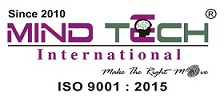
In the fast-paced world of corporate environments, the mental and emotional well-being of employees plays a pivotal role in organizational success. Recognizing the significance of a healthy work environment, many forward-thinking companies are embracing Corporate Counseling as a fundamental strategy. This article delves into the importance, methods, and benefits of integrating counseling within the corporate setting.
Understanding the Need for Workplace Counseling
Modern workplaces are characterized by high levels of stress, tight deadlines, and demanding expectations. Such environments can often lead to burnout, decreased productivity, and increased turnover rates. Recognizing these challenges, corporate counseling emerges as a proactive approach to address underlying issues, enhance employee well-being, and foster a positive organizational culture.
Key Components of Corporate Counseling
Confidentiality: One of the foundational principles of Corporate Therapist is confidentiality. Employees must feel safe and assured that their discussions with counselors remain private. This trust facilitates open communication, allowing individuals to address concerns without fear of repercussions.
Accessibility: Making Corporate Counselling Services easily accessible is crucial. Companies can achieve this by partnering with external counseling services, establishing in-house counseling departments, or providing resources for employees to seek external support. By eliminating barriers to access, more employees can benefit from these essential services.
Tailored Interventions: Recognizing that each employee’s experience is unique, corporate counseling emphasizes tailored interventions. Counselors work closely with individuals to understand their specific challenges, concerns, and aspirations, developing personalized strategies to address underlying issues effectively.
Skill Development: Beyond addressing immediate concerns, corporate counseling focuses on skill development. This includes enhancing communication skills, stress management techniques, conflict resolution strategies, and resilience building. By equipping employees with these tools, organizations promote long-term well-being and professional growth.
Benefits of Workplace Counseling
Enhanced Productivity: Primary Benefit of Corporate Counseling Addressing mental health concerns and stressors directly correlates with improved productivity. Employees experiencing reduced stress levels, enhanced job satisfaction, and improved mental well-being are more engaged, motivated, and productive. This, in turn, contributes to organizational success and growth.
Reduced Turnover Rates: Workplace counseling plays a pivotal role in reducing turnover rates. Employees who feel supported, valued, and heard are more likely to remain loyal to their organizations. By addressing underlying concerns and fostering a positive work environment, companies can retain talent, reduce recruitment costs, and maintain continuity in operations.
Positive Organizational Culture: Integrating counseling within the corporate setting sends a powerful message about organizational values. It demonstrates a commitment to employee well-being, fosters a culture of trust and openness, and promotes collaboration and teamwork. Such environments attract top talent, enhance employer branding, and contribute to long-term success.
Risk Mitigation: Proactively addressing potential mental health concerns and workplace issues mitigates organizational risks. By identifying challenges early on and implementing appropriate interventions, companies can prevent conflicts, address concerns promptly, and maintain a harmonious work environment. This proactive approach safeguards organizational reputation, minimizes legal implications, and ensures compliance with workplace regulations.
Implementation Strategies
Leadership Buy-In: Successful implementation of workplace counseling requires leadership buy-in. Senior management must recognize the importance of employee well-being, allocate resources for counseling services, and actively promote a culture of openness, support, and collaboration.
Training and Development: Investing in training and development ensures counselors possess the necessary skills, expertise, and knowledge to address diverse employee needs effectively. This includes ongoing professional development, staying updated on best practices, and fostering a culture of continuous learning and improvement.
Feedback Mechanisms: Establishing feedback mechanisms is crucial. Regularly soliciting feedback from employees, monitoring counseling outcomes, and adapting strategies based on insights ensure services remain relevant, impactful, and aligned with organizational goals and objectives.
Collaboration and Partnership: Building partnerships with external counseling services, mental health organizations, and experts in the field fosters collaboration. Such partnerships facilitate knowledge sharing, access to resources, and innovative solutions to address evolving challenges effectively.


